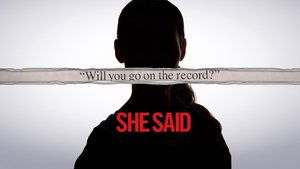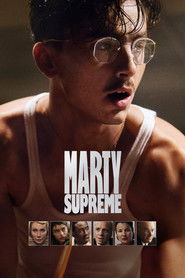Former film producer Harvey Weinstein was once synonymous with Oscar success. His far-reaching impact on Hollywood became so enormous that the movie mogul felt invincible enough to use his power and influence to pressure, and eventually force, eager young actresses into sexual situations beyond their will. Maria Schrader’s presumed Best Picture contender, She Said, shines a light on those courageous individuals who helped bring down a despicable Hollywood titan and change the course of the world.
After failing to sway voters with her shocking New York Times story of multiple sexual assault allegations against Donald Trump in the lead up to the 2016 election, Megan Twohey (played by Carey Mulligan) struggles to a see a light at the end of the tunnel. But with women protesting in Washington D.C. and standing up to speak out in large numbers, fellow journalist, Jodi Kantor (Zoe Kazan), gets wind of rumors regarding a famous movie producer using his industry stature to force unknown actresses into doing the unthinkable. And when all trails lead to Harvey Weinstein, Kantor convinces her colleague Meghan Twohey to take another crack at bringing predatory male behavior to the spotlight.

She Said is a movie made by women, for women and about women. The film tells a significant true story, one whose disturbing and disgusting realities undoubtedly spurred a monumental movement in world history. Now, relevance aside, German writer, actress and filmmaker Maria Schrader's first foray into awards season contention also comes with many imperfections. She Said chooses to paint a black and white portrait of the world and the men who inhabit it. Outside of husbands and co-workers at The New York Times, essentially every other male in the film is crafted as an abuser, a person complicit and silent towards these crimes, or just a nasty everyday male who has evolved into a byproduct of this misogynistic system in place. For instance, even a casual Joe-nobody with zero relevance to the story is shoe-horned into a bar scene solely to be an obnoxious, instigating pig in an onscreen moment that feels wildly inauthentic. While writing decisions such as these add an emotional impact to the film's harrowing real-life events, they also serve as a hyperbolic and disingenuous reflection of the countless male allies who also desire systemic change on these women’s behalf.
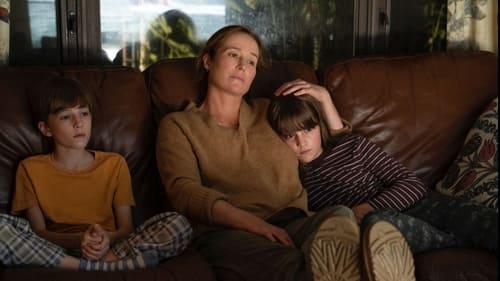
Also, from a viewing perspective, She Said is a two-hour long cycle through typical investigative journalism film tropes. It never deviates from the formula and often comes off as a paint-by-numbers effort, failing to make its minutes count, However, when the film ultimately reaches its climactic finale, Schrader and company do a superb job of capturing the stark bravery of these victimized women as they finally decide to speak out about their experiences after decades of being silenced.
All in All, Maria Schrader's latest effort recounts a meaningful and necessary quest to change the world in an often flat and listless manner. Even a pair of excellent performances from leading stars Carey Mulligan and Zoe Kazan hardly keep the film afloat. While She Said has all the right ingredients to garner the interest of Academy voters, it's a far cry from other journalistic greats such as All the President's Men and Spotlight.
-
 NameCarey MulliganCharacterMegan Twohey
NameCarey MulliganCharacterMegan Twohey -
 NameZoe KazanCharacterJodi Kantor
NameZoe KazanCharacterJodi Kantor -
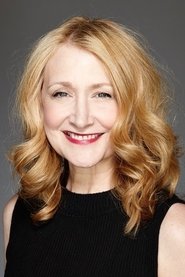 NamePatricia ClarksonCharacterRebecca Corbett
NamePatricia ClarksonCharacterRebecca Corbett -
 NameAndre BraugherCharacterDean Baquet
NameAndre BraugherCharacterDean Baquet -
 NameLola PetticrewCharacterYoung Laura
NameLola PetticrewCharacterYoung Laura -
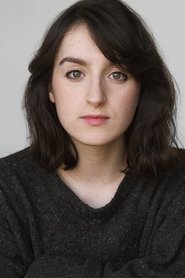 NameKatherine LaheenCharacterIrish Film Crew Woman
NameKatherine LaheenCharacterIrish Film Crew Woman -
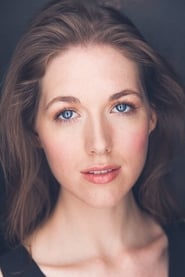 NameEmma Clare O'ConnorCharacterRachel Crooks
NameEmma Clare O'ConnorCharacterRachel Crooks -
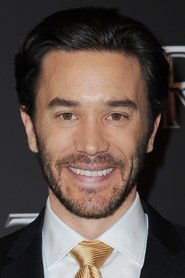 NameTom PelphreyCharacterVadim Rutman
NameTom PelphreyCharacterVadim Rutman -
 NameDalya KnappCharacterTalia
NameDalya KnappCharacterTalia -
 NameEmery Ellis HarperCharacterViolet
NameEmery Ellis HarperCharacterViolet -
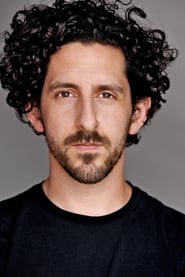 NameAdam ShapiroCharacterRon Lieber
NameAdam ShapiroCharacterRon Lieber -
 NameJames Austin JohnsonCharacterDonald Trump (voice)
NameJames Austin JohnsonCharacterDonald Trump (voice) -
 NameKatie NisaCharacterNurse in Clinic
NameKatie NisaCharacterNurse in Clinic -
 NameFrank WoodCharacterMatt Purdy
NameFrank WoodCharacterMatt Purdy -
 NameSarah Ann MasseCharacterEmily Steel
NameSarah Ann MasseCharacterEmily Steel -
 NameMike SparaCharacterMichael Schmidt
NameMike SparaCharacterMichael Schmidt -
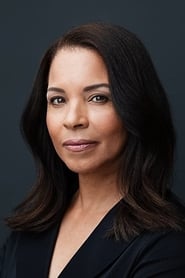 NameTraci WolfeCharacterJournalist
NameTraci WolfeCharacterJournalist -
 NameSujata EyrickCharacterJournalist
NameSujata EyrickCharacterJournalist -
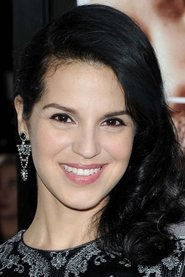 NameShirley RumierkCharacterMiramax Employee
NameShirley RumierkCharacterMiramax Employee -
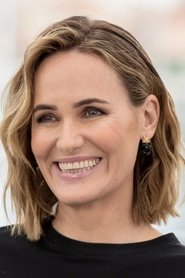 NameJudith GodrècheCharacterJudith Godrèche (voice)
NameJudith GodrècheCharacterJudith Godrèche (voice) -
 NameDipa AnitiaCharacterUltrasound Tech
NameDipa AnitiaCharacterUltrasound Tech -
 NameTessa LeeCharacterMary
NameTessa LeeCharacterMary -
 NameKeilly McQuailCharacterRose McGowan (voice)
NameKeilly McQuailCharacterRose McGowan (voice) -
 NameAshley JuddCharacterAshley Judd
NameAshley JuddCharacterAshley Judd -
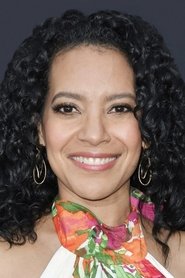 NameZabryna GuevaraCharacterGovernment Official
NameZabryna GuevaraCharacterGovernment Official -
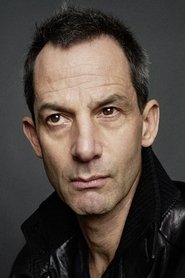 NameHarvey FriedmanCharacterInvestigator (voice)
NameHarvey FriedmanCharacterInvestigator (voice) -
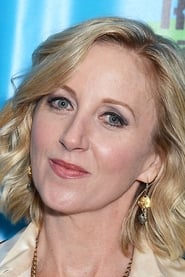 NameAnastasia BarzeeCharacterLisa Bloom
NameAnastasia BarzeeCharacterLisa Bloom -
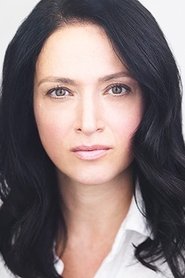 NameRoxanna Hope RadjaCharacterEx-Assistant in Queens
NameRoxanna Hope RadjaCharacterEx-Assistant in Queens -
 NameJohn MazurekCharacterJohn Schmidt
NameJohn MazurekCharacterJohn Schmidt -
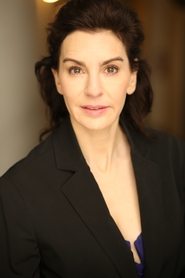 NameHilary GreerCharacterMrs. Schmidt
NameHilary GreerCharacterMrs. Schmidt -
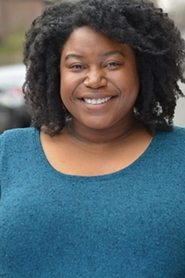 NameMakia MartinCharacterEEOC Woman (voice)
NameMakia MartinCharacterEEOC Woman (voice) -
 NameLeah KreitzCharacterGwyneth Paltrow's Assistant
NameLeah KreitzCharacterGwyneth Paltrow's Assistant -
 NameNicole BetancourtCharacterWater Mill Woman
NameNicole BetancourtCharacterWater Mill Woman -
 NameMarceline HugotCharacterLinda Fairstein
NameMarceline HugotCharacterLinda Fairstein -
 NameRuby ThomasCharacterWaitress
NameRuby ThomasCharacterWaitress -
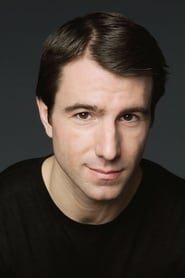 NameAlex HurtCharacterMan 1 at Bar
NameAlex HurtCharacterMan 1 at Bar -
 NameRichard BusserCharacterMan 2 at Bar
NameRichard BusserCharacterMan 2 at Bar -
 NameKatherine KendallCharacterMiramax Executive
NameKatherine KendallCharacterMiramax Executive -
 NameEdward Astor ChinCharacterAndrew Cheung
NameEdward Astor ChinCharacterAndrew Cheung -
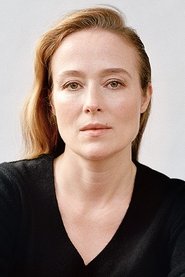 NameJennifer EhleCharacterLaura Madden
NameJennifer EhleCharacterLaura Madden -
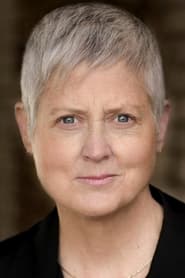 NameKathleen Mary CarthyCharacterLaura's Doctor
NameKathleen Mary CarthyCharacterLaura's Doctor -
 NameMaren HearyCharacterNell
NameMaren HearyCharacterNell -
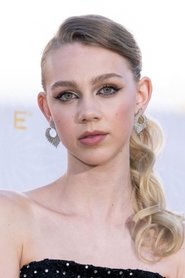 NameElle GrahamCharacterGracie
NameElle GrahamCharacterGracie -
 NameWesley HollowayCharacterHywel
NameWesley HollowayCharacterHywel -
 NameJustine ColanCharacterIris
NameJustine ColanCharacterIris -
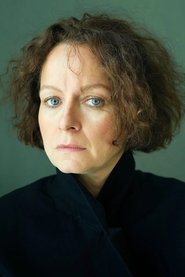 NameSamantha MortonCharacterZelda Perkins
NameSamantha MortonCharacterZelda Perkins -
 NameMolly WindsorCharacterYoung Zelda
NameMolly WindsorCharacterYoung Zelda -
 NameAshley ChiuCharacterYoung Rowena
NameAshley ChiuCharacterYoung Rowena -
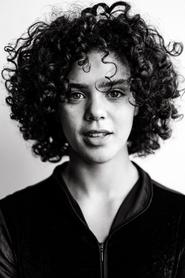 NameSafia Oakley-GreenCharacterClub Dancer
NameSafia Oakley-GreenCharacterClub Dancer -
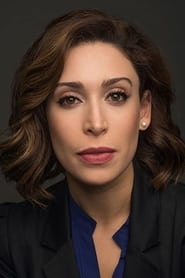 NameCatherine LeFrereCharacterPamela Lubell (voice)
NameCatherine LeFrereCharacterPamela Lubell (voice) -
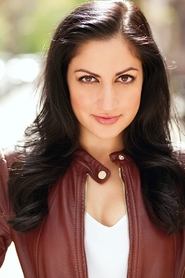 NameAnita SabherwalCharacterReceptionist
NameAnita SabherwalCharacterReceptionist -
 NameMakayla PattonCharacterDean's Secretary (voice)
NameMakayla PattonCharacterDean's Secretary (voice) -
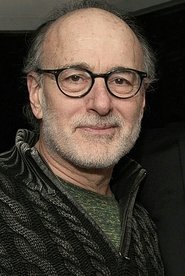 NamePeter FriedmanCharacterLanny Davis
NamePeter FriedmanCharacterLanny Davis -
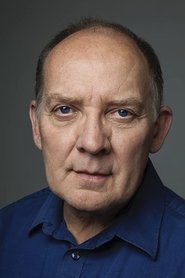 NameZach GrenierCharacterIrwin Reiter
NameZach GrenierCharacterIrwin Reiter -
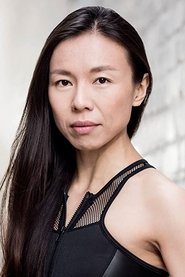 NameAngela YeohCharacterRowena Chiu
NameAngela YeohCharacterRowena Chiu -
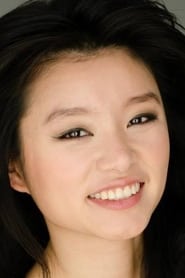 NameCelia AuCharacterWaitress in Hong Kong
NameCelia AuCharacterWaitress in Hong Kong -
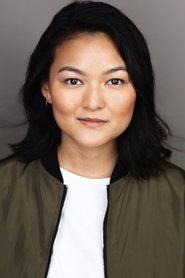 NameTina WongLuCharacterCashier in Hong Kong
NameTina WongLuCharacterCashier in Hong Kong -
 NameLauren O'ConnorCharacterLauren O'Connor
NameLauren O'ConnorCharacterLauren O'Connor -
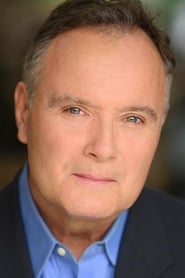 NameSean CullenCharacterLance Maerov
NameSean CullenCharacterLance Maerov -
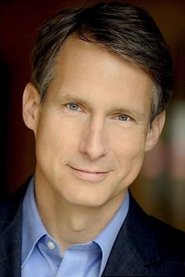 NameGregg EdelmanCharacterDavid McCraw
NameGregg EdelmanCharacterDavid McCraw -
 NameBrad AldousCharacterCharles Harder
NameBrad AldousCharacterCharles Harder -
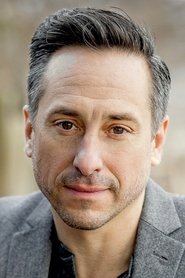 NameJason BabinskyCharacterDavid Glasser
NameJason BabinskyCharacterDavid Glasser -
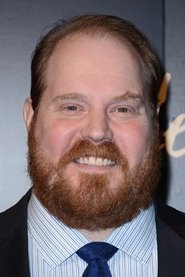 NameMike HoustonCharacterHarvey Weinstein
NameMike HoustonCharacterHarvey Weinstein -
 NameGeorge WalshCharacterLawyer
NameGeorge WalshCharacterLawyer -
 NameDavram StieflerCharacterRory Tolan
NameDavram StieflerCharacterRory Tolan -
 NameStephanie HeitmanCharacterNurse in Wales
NameStephanie HeitmanCharacterNurse in Wales -
 NameMary HigginsCharacterLaura's Friend
NameMary HigginsCharacterLaura's Friend
-
 NameMaria SchraderJobDirector
NameMaria SchraderJobDirector -
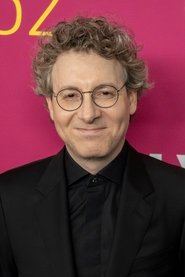 NameNicholas BritellJobOriginal Music Composer
NameNicholas BritellJobOriginal Music Composer -
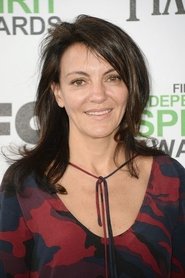 NameLila YacoubJobExecutive Producer
NameLila YacoubJobExecutive Producer -
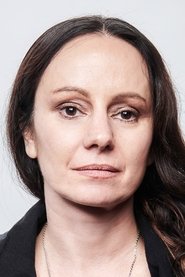 NameNatasha BraierJobDirector of Photography
NameNatasha BraierJobDirector of Photography -
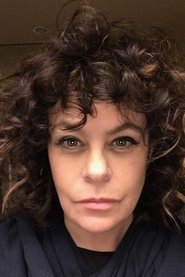 NameFrancine MaislerJobCasting
NameFrancine MaislerJobCasting -
 NameMeredith LippincottJobProduction Design
NameMeredith LippincottJobProduction Design -
 NameTommy LoveJobArt Direction
NameTommy LoveJobArt Direction -
 NamePhilippa CulpepperJobSet Decoration
NamePhilippa CulpepperJobSet Decoration -
 NameBrittany LoarJobCostume Design
NameBrittany LoarJobCostume Design -
 NameCarla AntoninoJobMakeup Department Head
NameCarla AntoninoJobMakeup Department Head -
 NameChristine FennellJobHair Department Head
NameChristine FennellJobHair Department Head -
 NameAlex KingJobMakeup Supervisor
NameAlex KingJobMakeup Supervisor -
 NameJacquetta LevonJobHair Department Head
NameJacquetta LevonJobHair Department Head -
 NameDanielle MinnellaJobMakeup Artist
NameDanielle MinnellaJobMakeup Artist -
 NameMichele ParisJobMakeup Department Head
NameMichele ParisJobMakeup Department Head -
 NameJenny PendergraftJobHair Assistant
NameJenny PendergraftJobHair Assistant -
 NameJonathan SharplessJobHair Department Head
NameJonathan SharplessJobHair Department Head -
 NameFabrizio CeratoJobProduction Supervisor
NameFabrizio CeratoJobProduction Supervisor -
 NameAndrea PuginiJobAssistant Production Manager
NameAndrea PuginiJobAssistant Production Manager -
 NameAmi WergesJobProduction Supervisor
NameAmi WergesJobProduction Supervisor -
 NameAlexander ArmeroJobSecond Assistant Director
NameAlexander ArmeroJobSecond Assistant Director -
 NameOzzy EmeryJobThird Assistant Director
NameOzzy EmeryJobThird Assistant Director -
 NameDuccio FabbriJobFirst Assistant Director
NameDuccio FabbriJobFirst Assistant Director -
 NameRahul MenonJobProduction Assistant
NameRahul MenonJobProduction Assistant -
 NameAlberto MangiapaneJobKey Production Assistant
NameAlberto MangiapaneJobKey Production Assistant -
 NameStefani NedanovaJobFloor Runner
NameStefani NedanovaJobFloor Runner -
 NameTristan RingenoldusJobSecond Second Assistant Director
NameTristan RingenoldusJobSecond Second Assistant Director -
 NameDavid StaffordJobFirst Assistant Director
NameDavid StaffordJobFirst Assistant Director -
 NameMelinda ZiyadatJobSecond Assistant Director
NameMelinda ZiyadatJobSecond Assistant Director -
 NameMichael AitkenJobProperty Master
NameMichael AitkenJobProperty Master -
 NameYoulian AvramovJobGraphic Designer
NameYoulian AvramovJobGraphic Designer -
 NameSia BalabanovaJobAssistant Art Director
NameSia BalabanovaJobAssistant Art Director -
 NameRyan GertsenJobConstruction Coordinator
NameRyan GertsenJobConstruction Coordinator -
 NameJade GoheenJobGraphic Designer
NameJade GoheenJobGraphic Designer -
 NameAlec HansenJobSet Dresser
NameAlec HansenJobSet Dresser -
 NameKatie KemsleyJobScenic Artist
NameKatie KemsleyJobScenic Artist -
 NameRamsey ScottJobArt Department Coordinator
NameRamsey ScottJobArt Department Coordinator -
 NameZelda VyssotskyJobGraphic Designer
NameZelda VyssotskyJobGraphic Designer -
 NameAshley WellbrockJobAssistant Set Decoration
NameAshley WellbrockJobAssistant Set Decoration -
 NamePatrick OwenJobProduction Sound Mixer
NamePatrick OwenJobProduction Sound Mixer -
 NameRobert KeymerJobSpecial Effects
NameRobert KeymerJobSpecial Effects -
 NameMorgan PittsJobSpecial Effects
NameMorgan PittsJobSpecial Effects -
 NameMatt AkeyJobVFX Production Coordinator
NameMatt AkeyJobVFX Production Coordinator -
 NameBecca GTJobStunt Double
NameBecca GTJobStunt Double -
 NameJosh LakatosJobStunts
NameJosh LakatosJobStunts -
 NameKansas BallesterosJobCamera Loader
NameKansas BallesterosJobCamera Loader -
 NameChristopher EngJobFirst Assistant Camera
NameChristopher EngJobFirst Assistant Camera -
 NameStanley Fernandez Jr.JobCamera Operator
NameStanley Fernandez Jr.JobCamera Operator -
 NamePippa Griffith-JonesJobSecond Assistant Camera
NamePippa Griffith-JonesJobSecond Assistant Camera -
 NameGeoffrey D. KnollerJobKey Grip
NameGeoffrey D. KnollerJobKey Grip -
 NameRoberto MuleJobFirst Assistant Camera
NameRoberto MuleJobFirst Assistant Camera -
 NameDennis NoyesJobSteadicam Operator
NameDennis NoyesJobSteadicam Operator -
 NameLewis RothenbergJobDigital Imaging Technician
NameLewis RothenbergJobDigital Imaging Technician -
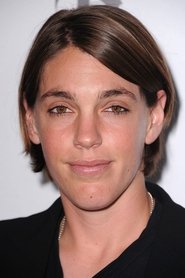 NameMegan EllisonJobExecutive Producer
NameMegan EllisonJobExecutive Producer -
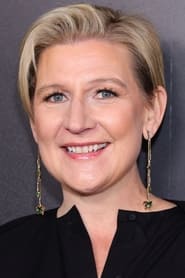 NameSue NaegleJobExecutive Producer
NameSue NaegleJobExecutive Producer -
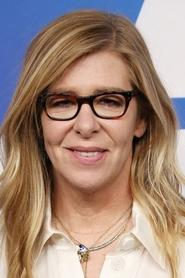 NameDede GardnerJobProducer
NameDede GardnerJobProducer -
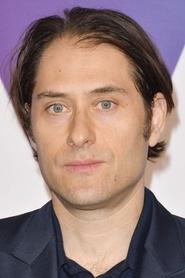 NameJeremy KleinerJobProducer
NameJeremy KleinerJobProducer -
 NameLexi BartaJobSupervising Producer
NameLexi BartaJobSupervising Producer -
 NameJodi KantorJobBook
NameJodi KantorJobBook -
 NameMegan TwoheyJobBook
NameMegan TwoheyJobBook -
 NamePeter SchallJobRigging Gaffer
NamePeter SchallJobRigging Gaffer -
 NameMark SchmidtJobSteadicam Operator
NameMark SchmidtJobSteadicam Operator -
 NameLuca SportelliJobSteadicam Operator
NameLuca SportelliJobSteadicam Operator -
 NameThierry A. TotoJobCamera Trainee
NameThierry A. TotoJobCamera Trainee -
 NameThomas TownendJobAdditional Photography
NameThomas TownendJobAdditional Photography -
 NameJoJo WhildenJobStill Photographer
NameJoJo WhildenJobStill Photographer -
 NameRonnie WraseJobSecond Assistant Camera
NameRonnie WraseJobSecond Assistant Camera -
 NameMia CusumanoJobCasting Associate
NameMia CusumanoJobCasting Associate -
 NameBelle JiaoJobExtras Casting
NameBelle JiaoJobExtras Casting -
 NameMikhaela RoninJobExtras Casting Assistant
NameMikhaela RoninJobExtras Casting Assistant -
 NameAlice BambridgeJobCostume Coordinator
NameAlice BambridgeJobCostume Coordinator -
 NameRose BellJobSet Costumer
NameRose BellJobSet Costumer -
 NameLaura BorysJobAssistant Costume Designer
NameLaura BorysJobAssistant Costume Designer -
 NameLynne Maureen CurtisJobWardrobe Supervisor
NameLynne Maureen CurtisJobWardrobe Supervisor -
 NameThomas SchusterJobCostume Coordinator
NameThomas SchusterJobCostume Coordinator -
 NameDulcie ScottJobCostume Supervisor
NameDulcie ScottJobCostume Supervisor -
 NameAdam MooreJobColorist
NameAdam MooreJobColorist -
 NameIan BurleyJobLocation Assistant
NameIan BurleyJobLocation Assistant -
 NameClemens ChuJobLocation Assistant
NameClemens ChuJobLocation Assistant -
 NameKerrie ClineJobAssistant Location Manager
NameKerrie ClineJobAssistant Location Manager -
 NameJames KennyJobAssistant Location Manager
NameJames KennyJobAssistant Location Manager -
 NameChristopher KusiakJobLocation Manager
NameChristopher KusiakJobLocation Manager -
 NameGrace KwonJobLocation Manager
NameGrace KwonJobLocation Manager -
 NameLindsey LambertJobAssistant Location Manager
NameLindsey LambertJobAssistant Location Manager -
 NameLindsey LambertJobLocation Scout
NameLindsey LambertJobLocation Scout -
 NameJohn PappJobAssistant Location Manager
NameJohn PappJobAssistant Location Manager -
 NameAustin SiegertJobLocation Assistant
NameAustin SiegertJobLocation Assistant -
 NameA.J. SwirzJobLocation Coordinator
NameA.J. SwirzJobLocation Coordinator -
 NameMatthew H. WiesnerJobLocation Scout
NameMatthew H. WiesnerJobLocation Scout -
 NameMolly WilsonJobLocation Assistant
NameMolly WilsonJobLocation Assistant -
 NameElena AntzonJobScript Supervisor
NameElena AntzonJobScript Supervisor -
 NameRebecca BreckelJobScript Supervisor
NameRebecca BreckelJobScript Supervisor -
 NameRoberta ButtiJobScript Supervisor
NameRoberta ButtiJobScript Supervisor -
 NameThomas MoodieJobScript Supervisor
NameThomas MoodieJobScript Supervisor -
 NameRebecca LenkiewiczJobScreenplay
NameRebecca LenkiewiczJobScreenplay -
 NameLexi BartaJobProducer
NameLexi BartaJobProducer -
 NameDavid M. Night MaireJobProduction Assistant
NameDavid M. Night MaireJobProduction Assistant -
 NameHansjörg WeißbrichJobEditor
NameHansjörg WeißbrichJobEditor -
 NameJames BakerJobSound Mixer
NameJames BakerJobSound Mixer -
 NameJames BakerJobProduction Sound Mixer
NameJames BakerJobProduction Sound Mixer -
 NameTeddy BlanksJobTitle Designer
NameTeddy BlanksJobTitle Designer -
 NameSofía BlancoJobSecond Second Assistant Director
NameSofía BlancoJobSecond Second Assistant Director -
 NameSean MurrayJobGraphic Designer
NameSean MurrayJobGraphic Designer -
 NameAlex BickelJobColorist
NameAlex BickelJobColorist -
 NameJodi KantorJobOther
NameJodi KantorJobOther -
 NameMegan TwoheyJobOther
NameMegan TwoheyJobOther -
 NameRebecca CorbettJobOther
NameRebecca CorbettJobOther -
 NameBrad PittJobExecutive Producer
NameBrad PittJobExecutive Producer -
 NameLila YacoubJobUnit Production Manager
NameLila YacoubJobUnit Production Manager -
 NameSamantha Kreitzer DyerJobUnit Production Manager
NameSamantha Kreitzer DyerJobUnit Production Manager -
 NameCaitlin SullivanJobMusic
NameCaitlin SullivanJobMusic















